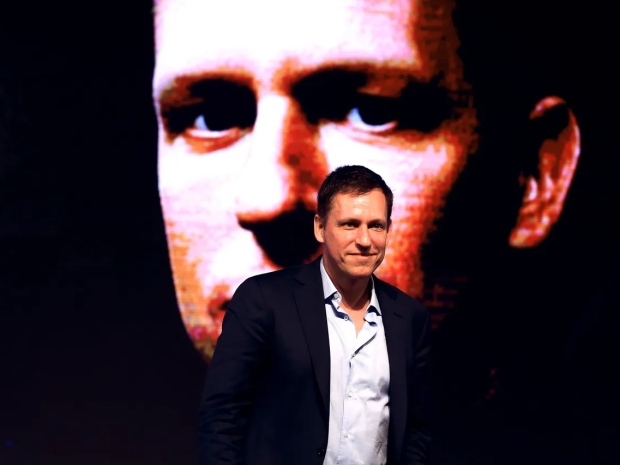In a private four-part lecture series in San Francisco, Thiel has been connecting Christian Nationalist "prophecy" with modern tech’s darker edges. He claims that fears over AI and biotechnology could be used as excuses to hand power to a charismatic, global authoritarian figure who would match the biblical description of the Antichrist.
According to the Wall Street Journal, in one lecture, Thiel told attendees that cracking down on technological innovation could hasten this apocalypse.
“I think the biblical language, it sounds crazier, but it’s actually more hopeful,” he said during an earlier Hoover Institution interview, explaining his belief that humanity could still find a third path and avoid doom.
Not everyone is convinced. Jay Kim, lead pastor at WestGate Church in the Bay Area, argued that Thiel’s obsession with the Antichrist is barking up the wrong theological tree.
“The New Testament writers focus very little, if at all, on accurately identifying the Antichrist. To give all your energy into thinking about all that, to me, feels like a pretty futile endeavour,” Kim said.
Still, Thiel isn’t alone in dragging Christianity into Silicon Valley’s tech labs. A growing number of figures in the valley have begun to speak publicly about their faith, with some pushing for Christian frameworks to shape the development of AI. Even Pope Leo XIV has weighed in, taking his name from a previous pontiff known for facing down a technological upheaval.
Jonathan Gundlach, a minister and attorney who knows Thiel’s circle, said the rapid rise of AI has created a spiritual void. “There’s a heightened sense of spirituality because it feels like we’re dealing with a new form of being that has infinite potential. It’s kind of like a God,” he said.
Thiel’s talks are hosted by ACTS 17, a nonprofit led by Michelle Stephens, a tech executive whose husband, Trae Stephens, co-founded defence contractor Anduril and works at Thiel’s Founders Fund. She said they created the group to explore what it means to be a Christian in a tech culture that often looks sideways at religion.
She pushed back against criticism that ACTS 17 is a posh echo chamber for the wealthy.
“Christians actually don’t do a very good job of ministering to the wealthy, who can think that they’re basically gods themselves which can be very dangerous,” she said.
Thiel’s Antichrist, according to his lectures, might not come cloaked in obvious tyranny. It could be someone charming, philanthropic and persuasive, a kind of techno-Messiah who promises salvation through control.
“The Antichrist probably presents as a great humanitarian. It’s redistributive, it’s an extremely great philanthropist as an effective altruist,” he said.
He’s cited everything from Renaissance paintings to Japanese manga, as well as the apocalyptic novels of a Catholic priest and conversations with French philosopher René Girard, to make his point.
“The apocalyptic prophecies are just a prediction of what humans are likely to do in a world in which they have ever more powerful technologies in which there are no sacred limits,” Thiel warned.

